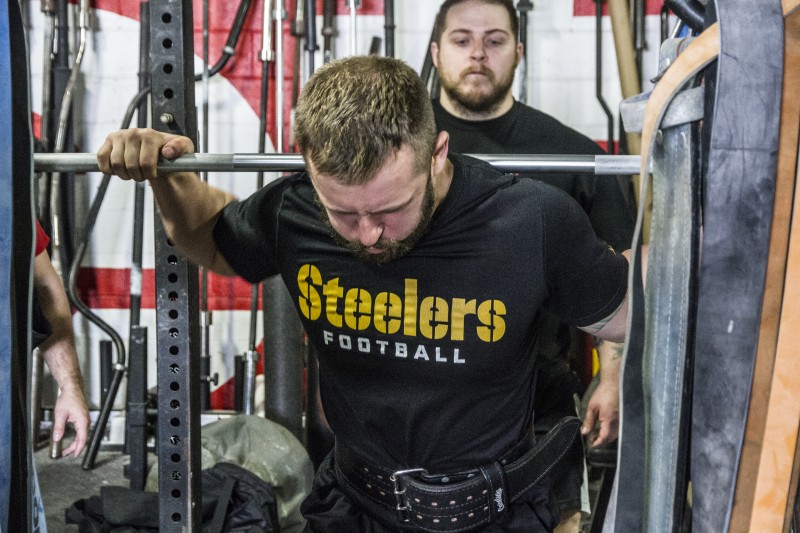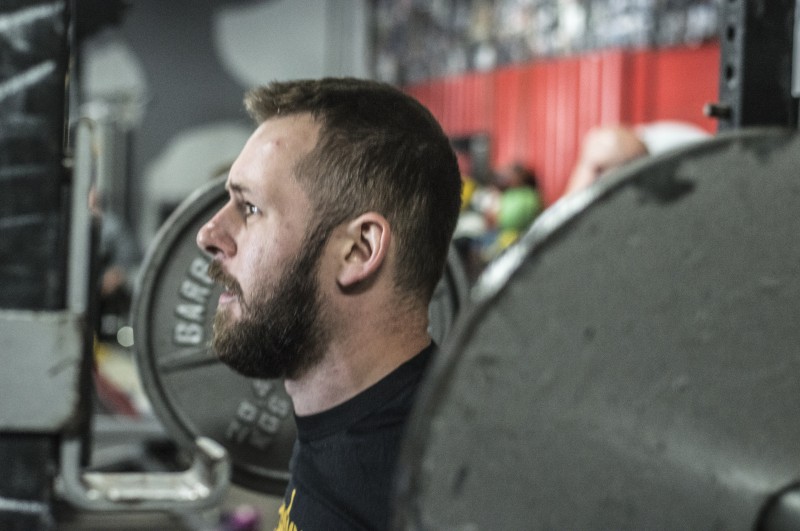
As I get closer to the decade mark, I spend more time analyzing my work experience for lessons, insights, and how my training practice has evolved. Fitness has immense upsides and unforeseen pitfalls, but ultimately it is an immensely gratifying field to work in. Having recently read Michael Speidel's “5 Lessons from 13 Years in Leadership”, I reframed it to personal training.
Training is an applied field, and I can say with conviction there is very little you can read that will prepare you for it. Everyone starts at “shit” stage, more or less. Beyond the basics of exercise instruction and understanding movement principles to keep people safe, application is what should guide your learning.
At one time, I would read A LOT and apply that to clients.
And then I’d get frustrated by the fact that I was reading the perspectives of 20 different “fit pros” and that my clients never quite lined up with anything recommended.
And then I realized that concepts were what mattered, not rules, and that I was dealing with a dynamic human being in front of me, not a group of muscles, imbalances, or confused minds.
Clients are people, and THEY are the filter that should guide what you learn.
RECENT: 15 Tips for Getting JACKED...Over A Long Period of Time
Now it's the reverse. I work with clients, observe, and then use the experience as the filter for what I need to be improving on. Observation, research, experimentation, application.
The following are simple points, but they are relevant to anyone who ever works with clients in any capacity, not just personal training. Avoiding these mistakes will go a long way in improving the value of your training and maximizing your working experience.
1. When taking on clients with prior personal training experience, don’t demonize the previous trainer.
There is a phenomena that is rarely discussed in the industry: the best clients are often “serial clients." They have ALWAYS had trainers. And it will likely happen that these individuals become YOUR clients at some point. Their former trainer may have left them or they may have left their trainer. Regardless, this presents an interesting conundrum: they may have worked with someone very qualified, or completely terrible. So what do you do?
I’ve witnessed trainers get anxious over “living up” to the prior trainer. And I’ve also seen trainers relentlessly bad mouth the prior person for not knowing what they were doing. Regardless of whether the prior person was better or worse, do not compare yourself to them.
People pick up on insecurity, and critiquing another person as being unqualified as means of making yourself look good is a lousy way to establish credibility. Your client may be very fond of their prior trainer, or they may want to forget the experience. Comparison serves no purpose, and it is a telltale sign of unprofessionalism.
When starting with a new “serial client”:
- Learn about their prior experience. Be non-judgmental.
- Be neutral if the experience was bad. My go-to answer whenever I hear anything cringe-worthy: “there are a lot of different perspectives, that must have been what they thought was best.”
- Don't compare, ever. Reframe to what your philosophy is and how you do things, and how it may be different (or similar) to their prior experience.
- If the experience was positive, be complementary to the prior trainer.
2. ALWAYS give your client your full attention for the length of the session.
This goes beyond putting your phone away. We all live in a society where constant distraction exists ubiquitously. Be it advertising, media, people, etc., there has never been greater demand on our attention.
As such, having the unbroken attention of another person for an entire hour (or close to it) is becoming an increasingly rare experience. Attention is more than just putting your phone away in a drawer. Attention is FOCUS. It is eye contact, body language, and genuine interaction with whom you are working, with ZERO distractions. There is no substitution for the eye-to-eye, face-to-face experience.
I’ve seen mediocre trainers command premium prices solely because they were ALWAYS hyper-focused on their clients, poor programming be damned. People want a personal experience, so deliver on it.
3. Your clients don’t care how early you wake up.
For some trainers, they become delusional in their self-perception. They begin to believe that their role is of an “exercise martyr” and that they work “so hard” for everyone that they train. They also take it upon themselves that they are responsible not only for their clients' exercise and subsequent improvements in health, but for rescuing people, being a watchdog against big pharma, evil sugar, delusional government, false advertising, debunking doctors, thinking they are a doctor, fixing people’s pains, being their psychotherapist, and championing all manner of social justice causes that can be linked back to health through twisted logic.
What does this have to do with waking up early?
Everything, because your clients DO NOT CARE about any of this shit, least of all you not getting enough sleep.
Now, one can protest and say that their clients are their “friends”, and certainly, this may be true. But I doubt that you are friends with a person for the purpose of listening to lamentations on how fatigued they are, how much sleep they don’t get, and how awful the food/magazine/fashion industry is on the public health conscious. And then have them try to be your piss poor therapist.
People do not hire trainers to be lectured or complained to. While it is entirely normal to have intimate conversations with clients and build relationships, and certainly there is an intense psychological cornerstone to the profession, personal trainers need to maintain a scope of professionalism and practice.
As a trainer, the true value of your training comes down to what results you produce for people. More muscle, more strength, greater energy and health — that is what is relevant. Your personal stressors are not conducive to the clients training experience. Neither are your pet causes that you want to champion.
So focus on what is meaningful to your clients, not yourself. End point.
4. Celebrate the small victories with people.
People need reassurance. As children, we grow up (hopefully) hearing praise and encouragement, and participate in an educational system that promotes goal setting and positive reinforcement. As adults we rarely, if ever, hear this kind of encouragement from anyone.
Do we no longer need it? Do we grow out of it? Do we reach an age where our motivation and positivity should need no outside influence?
Big questions that don't have easy answers. But to speak to them from a personal training perspective, I will attest that adults respond to coaching and praise just as much as children do. Health can be a struggle for people, and exercise is something that people moralize and judge themselves on not being good at.
Simple strength benchmarks can be hugely significant to people: pull-ups, push-ups, being able to walk/jog/run without fatigue, being able to pick up weights over 20,30,40 pounds, etc. These things, to use a bad pun, can carry huge weight for people. As trainers we are (let us hope) already very physically fit. We can lose sight of the meaning of these milestone markers for people.
So celebrate them when they happen. People want approval, and if they trust you, your praise can mean the world to them. It does not need to be grandiose or showy, but a few words can make a world of difference to someone’s enthusiasm and investment in the training process.
5. Don’t demonize the fitness industry as being worse than it is, or people for not “getting it” when it comes to their own health.
Anyone that has worked in this field long enough has heard the complaints about how bad the gym/supplement/training industry is. Marketing is awful, people are lied to, people are deceived, etc. In turn, trainers complain that clients aren’t compliant, that people don’t follow instructions, that people need to stop making excuses, etc.
Guess what? It looks like everyone sucks equally, so get the fuck over it. This attitude is pessimistic, negative, and scarce.
In a greater context:
- More people than ever want to get healthy.
- There are more options than ever for people to educate themselves about their health.
- There are more resources than ever for fitness professionals to educate themselves.
- The amount of money people spend on health yearly is in the BILLIONS.
So why the bad attitudes? People love to be fatalistic and differentiate themselves as “better” by making everything else seem worse. Reality check time: there is NO industry in which everyone is golden, good, gracious, and morally upstanding. I have trained from almost every profession one could think, and there is not a single industry that is more “good” than the others. Bullshit is universal, and no profession is immune to it.
Or people love to make excuses, and rather than have self-awareness that they might be shitty at their job, they place the blame on those they work with. Reality check again: teaching is not easy, people are complicated, and when your clients fail and your business sucks, it is YOUR FAULT. Your attitude sucks, your marketing sucks, your worldview sucks, your training sucks, and it’s all on you.
Thankfully, that means you can change. If everything is your fault, then nothing is beyond your power to not affect.













